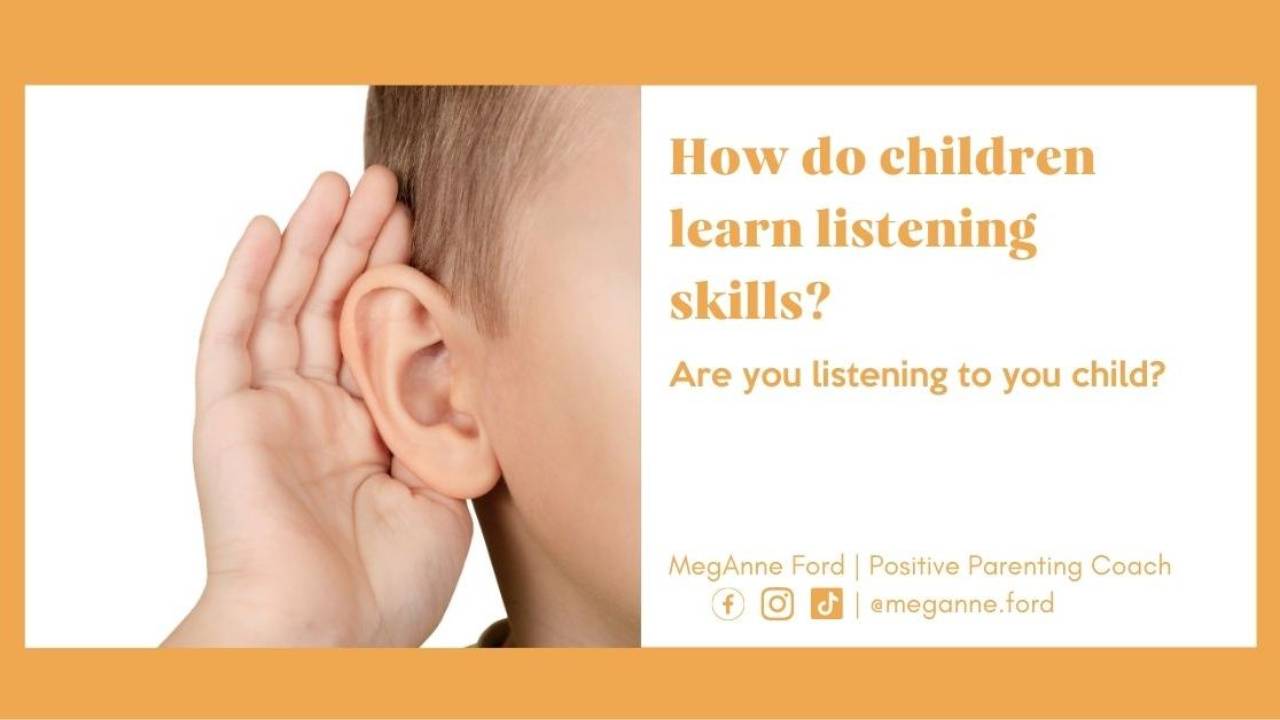
Want to Potty Train Faster? Use This Phrase!
Nov 22, 2023
My favorite skill to teach toddlers?
Potty training. No, I’m not joking. It was by far my favorite thing to teach.
Recently, I ran into the mother of one of my former students in a parking lot. She came right up to me and said:
“Hey MegAnne, you might not remember me, but I’m Margaret’s Mom. I just wanted to share how much I still appreciate how you potty trained our daughter in what seemed overnight. I will never forget what you did! After having such a miserable time potty training her older sister, this was such a huge relief and lesson for me! Thank you again!”
Takeaways
- Effective potty training methods should include teaching children to "listen to their body," fostering body awareness and internal control.
- Traditional potty training techniques like timers and rewards are helpful but should be complemented with language that encourages children to recognize and respond to their body's signals.
- Empowering children to handle accidents themselves teaches responsibility and reinforces the importance of paying attention to body signals.
- Nighttime potty training requires different strategies due to the difficulty of recognizing bodily signals while asleep, emphasizing the need for ongoing discussion about body awareness.
That is a true story. The friend who was with me at the time just stared at me. Yeah, that happens a lot - what can I say? I love potty training!
Potty training nurtures confidence, autonomy, and FREEDOM! For the toddler and for me! I have potty trained hundreds of children throughout my years. I used to really hate it. Until I realized I hated something else more.
I learned to love potty training because I hated diapers. I hated the smell, the soggy bottom, and the disruption of my task to change a poop or chase a child down to change a poop. I especially hated the butt smell test. It always felt so intrusive and gross.
In all honesty, I made the final leap into loving potty training after a diaper check that was the discovery of a blowout. That discovery came by way of a finger full of poop earned from my habitual pull-the-diaper-back check. I gagged and then scrubbed my finger for a solid 10 minutes.
That’s when I decided to love potty training. No more poop fingers. So, I started my quest to find the easiest way to potty train toddlers. Through much trial and error, I believe I may have discovered the most helpful phrase to incorporate into all potty training lingo (and which is actually generally just great lingo to use as often as possible).
The phrase I’m about to share can be used in so many situations, but specifically, I’m going to share why I love using it during potty training.
A Potty Training Technique that Works
What’s the magic phrase?
Listen to your body
Why does this help?
Typical potty training techniques focus on timers, stickers, and rewards. These are all fabulous tools to help the process progress, but they all stay focused on the external.
These tools do not address what is actually potty training your child; that is, the sensation and muscle contraction that happens inside the body. Incorporating this phrase helps instill some logical thinking and body awareness into this process.
Teaching children about the sensations they might feel inside their bodies is a huge part of helping potty training progress quickly. This conversation can start while your child is still in diapers. When you go to change your child’s diaper, start to connect the dots.
“Oh, you’re wet; that means that you peed. Your body must have signaled that it was time to pee just before it came out!”
This conversation can be expanded upon as the potty training process grows. You can model and share that your body gives you signals, too, and you have to listen to them to avoid having an accident.
You help deter accidents by teaching that accidents don’t just spontaneously happen - they are a result of ignoring the signals our bodies give us. I want to empower you to empower your child’s choice and role in this process.
I also want to empower you to empower your children so that when they have an accident, they can get undressed and redressed by themselves. Of course, with your support as they are learning the process, but shift this responsibility over as quickly as possible.
What they are capable of doing, they do. (Another great skill not just for potty training!)
This helps teach the real-life consequence of having an accident and helps encourage them to tune into those body signals - to avoid having to change themselves.
Using the phrase “listen to your body” helps connect the dots quicker and allows children to take ownership of their body and their choices.
It is not only about the potty training method
Now, I’m not saying that using this phrase will magically potty-train your child overnight. If that was the case, I would be a millionaire! What I am saying is that the sooner children understand the signals their body naturally gives them, potty training becomes more logical and understandable.
I encourage you to still use timers, charts, chocolate chips, and anything else you are currently using. I also encourage you to incorporate the phrase “listen to your body” to help create the internal control needed as well.
Before I end, I want to share just two more quick asides (probably better in a different blog post, but I will tease them here!)
First, the reason children hold themselves while they say they need to go to the potty is because they are literally trying to hold it. Children who are potty training are quite literal in their thinking; abstract thinking is still forming. So when we cue them to “hold it,” they literally grab themselves and work to literally hold it.
This is another problem solved by incorporating the language of internal control into the conversation. That’s what we are really talking about - squeezing the internal muscles to help keep the pee in while we get to a toilet. No hands required!
Second, nighttime training is a whole separate beast from daytime training. During the daytime, we are awake and aware.
We are able to stay mindful of the signals our bodies give us. At night, when we are asleep, and especially for heavy sleepers, those signals are harder to hear.
Night-time training often comes after daytime training, and it really requires unconscious bladder control. This, too, comes quicker when discussing and listening to our bodies.
And with that, I am listening to my body and going to go to the bathroom!










